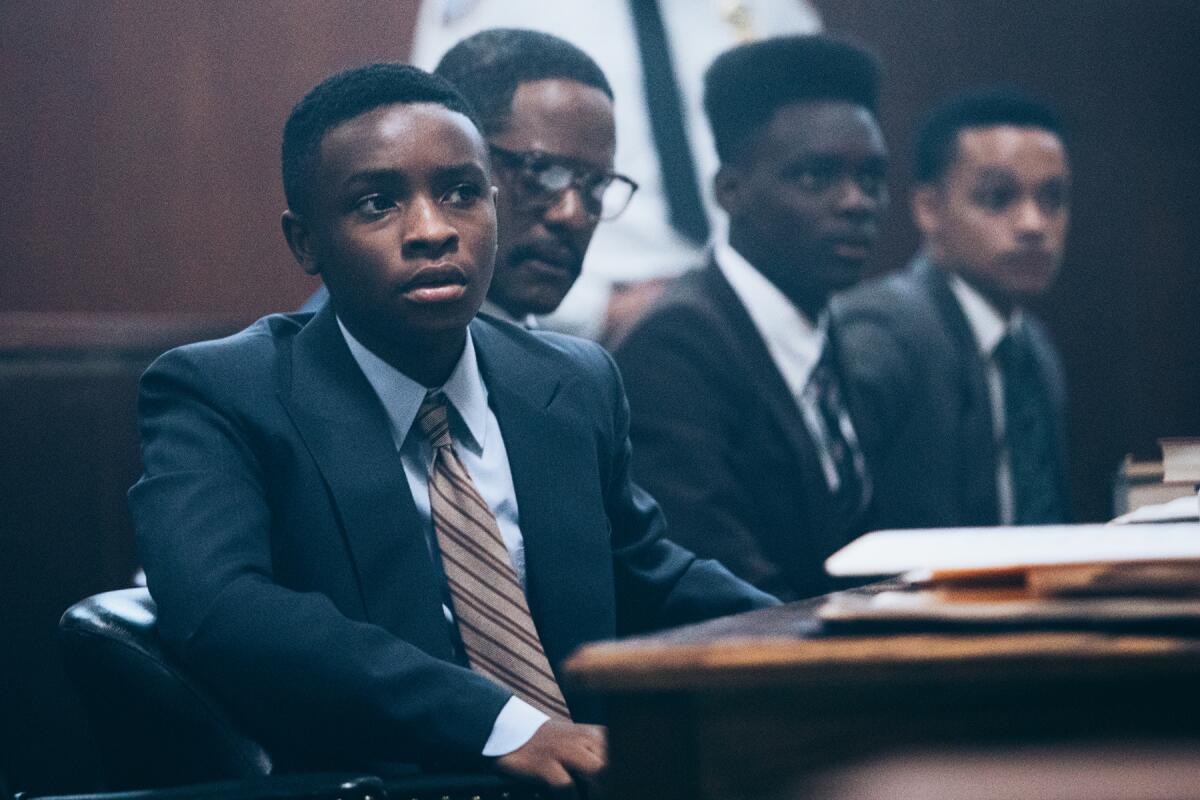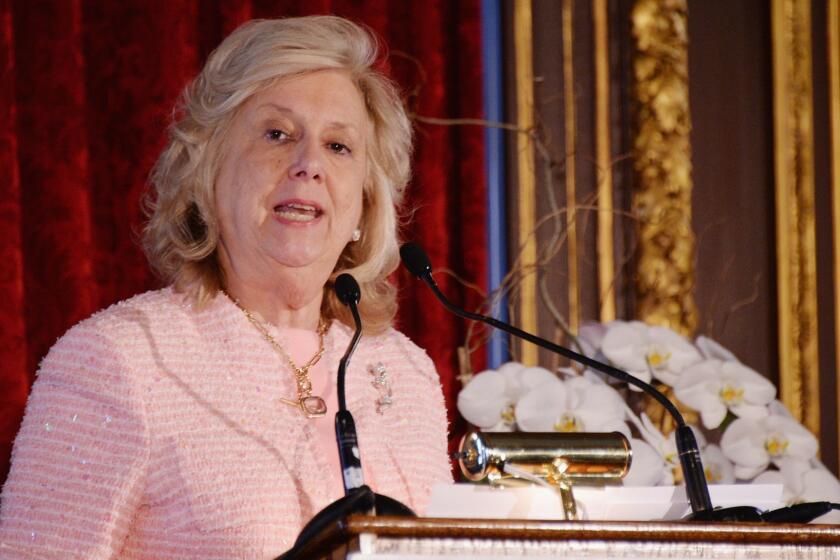Netflix, Ava DuVernay settle defamation lawsuit brought by ‘When They See Us’ prosecutor

- Share via
Ava DuVernay and Netflix have settled a defamation lawsuit filed by a former New York City prosecutor who disapproved of her portrayal in the acclaimed limited series “When They See Us.”
Defendants Netflix and DuVernay released a joint statement Tuesday with the plaintiff, Linda Fairstein, outlining the terms of the settlement. As part of the deal, Netflix has agreed to relocate the following disclaimer from the end credits to the beginning of the show.
“While the motion picture is inspired by actual events and persons, certain characters, incidents, locations, dialogue, and names are fictionalized for the purposes of dramatization,” the disclaimer reads.
Linda Fairstein, prosecutor in the Central Park Five case, is suing Netflix and Ava DuVernay for defamation
The Los Gatos, Calif.-based streaming giant has also promised to donate $1 million to the Innocence Project, a social justice organization that advocates for people who are wrongly incarcerated. Fairstein will not receive any money as part of the agreement.
DuVernay issued her own statement saying that Fairstein “had her husband call to pull the plug” on the lawsuit days before they were scheduled to appear in front of a New York City jury. The filmmaker said that she and Netflix rejected Fairstein’s original demands, which included “a cash payout” and a disclaimer stating that “everything to do with her in the show was fabricated.”
“I believe that Linda Fairstein was responsible for the investigation and prosecution of the Central Park Jogger case that resulted in the wrongful conviction of five innocent Black and Brown boys,” DuVernay said in her statement.
“Linda Fairstein decided that she was not willing to face a jury of her peers. It’s a phenomenon that often happens with bullies. When you stand up to them, unafraid, they often take their ball and go home.”
Fairstein said in a statement that “the decision to conclude this fight was not an easy one” and that in the end, the defamation case “was not about ‘winning’ or about any financial restitution” but about defending her reputation.
“It was about setting the historical record straight that the villainous caricature invented by the defendants and portrayed on screen was not me,” Fairstein said.
“That truth will be reinforced every time a viewer goes to watch the series ever again due to Netflix’s agreement in the settlement to place a disclaimer at the front of the series.”
Created and directed by DuVernay, “When They See Us” tells the story of the Central Park Five, a group of Black and Brown teenage boys wrongfully convicted in 1989 of raping and attacking a female jogger in New York City. The quintet was exonerated and released from prison in 2002.
Fairstein, who worked for the prosecution in the Central Park Five case, is played in the Emmy-winning courtroom drama by Felicity Huffman. The ex-attorney sued Netflix and DuVernay in March 2020 for allegedly depicting her “in a false and defamatory manner in nearly every scene ... in which she appears.”
Emmy nominee Jharrel Jerome, who stars in “When They See Us,” Ava DuVernay’s Netflix limited series about the Central Park Five, is emotional over his lead actor nod
The complaint further alleged that “When They See Us” unfairly portrayed Fairstein “as a racist, unethical villain who is determined to jail innocent children of color at any cost.”
At the time it was filed, Netflix dismissed the complaint as “frivolous” while pledging to “vigorously defend” the show, DuVernay and writer Attica Locke.
After “When They See Us” debuted on Netflix, Fairstein was dropped by her literary and film agency, as well as her publishers in the United States and the United Kingdom. The lawsuit also said that Fairstein lost consulting and public speaking jobs because of the series.
“When They See Us” was nominated for 16 Emmy Awards and nine NAACP Image Awards.
More to Read
Inside the business of entertainment
The Wide Shot brings you news, analysis and insights on everything from streaming wars to production — and what it all means for the future.
You may occasionally receive promotional content from the Los Angeles Times.













